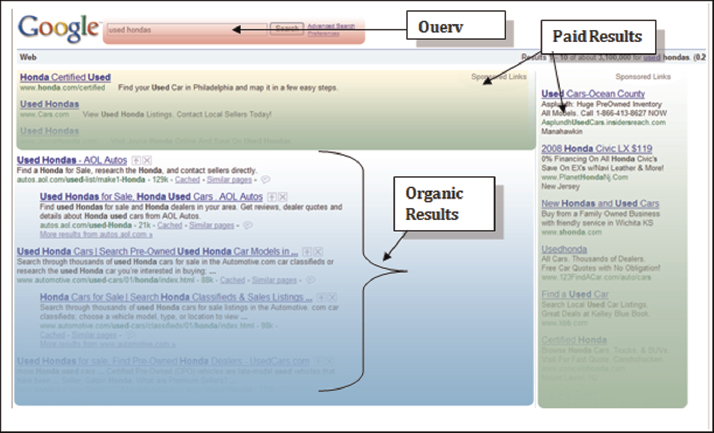THE DIFFERENCE BETWEEN ORGANIC AND PAID RESULTS
Search engines primarily make money via advertising, called paid search ads. These ads are also called pay per click (PPC) ads, because advertisers generally pay a certain amount each time a searcher clicks on them. For instance, Google’s advertising program is called AdWords. The way the system works is that when someone does a search, the search engine shows two lists of results: organic and paid (Figure 5.2).
Figure 5.2 Google’s Search Results Page

The organic results are based on the crawling, indexing, and results scoring infrastructure, and search engines strive to have the most comprehensive, relevant results they can to provide an optimal user experience. Most search engines (such as Google) don’t accept payment for placement in the organic results and make no guarantees about whether a site is indexed and where that site will rank. The paid search ads appear next to the organic results, and although engines also attempt to show relevant, useful results in their ads, companies pay for them. Paid search ads are the primary source of income for search engines.
Get Marketing in the Age of Google: Your Online Strategy IS Your Business Strategy, Revised and Updated now with the O’Reilly learning platform.
O’Reilly members experience books, live events, courses curated by job role, and more from O’Reilly and nearly 200 top publishers.

